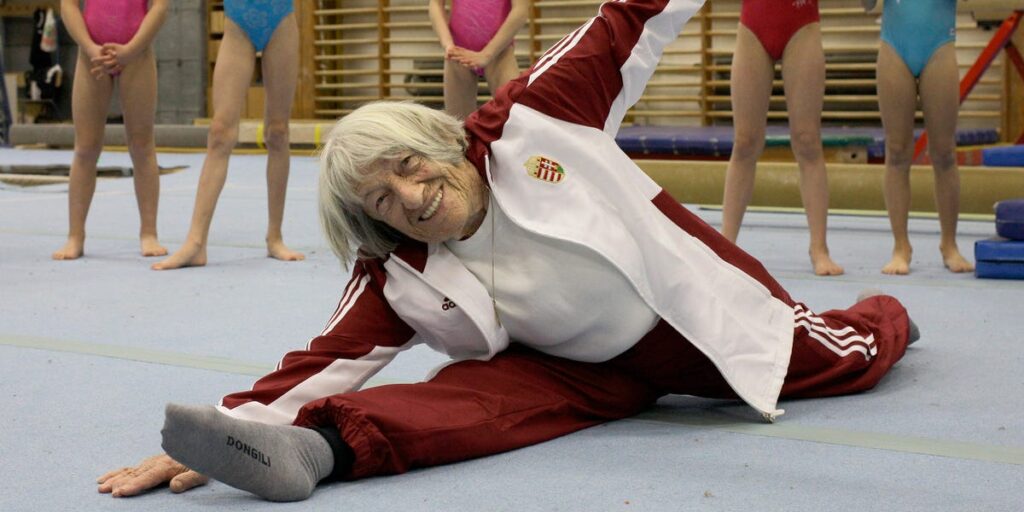- Ágnes Keleti, an Olympic gold medal-winning gymnast, has died at the age of 103.
- She entered her first Olympic games at 31, after injury and the Holocaust stalled her career.
- Keleti attributed her longevity to loving life and her success to always going the extra mile.
When she died on Thursday, Ágnes Keleti was the oldest living Olympic gold medallist, at 103 years old.
These days, Olympic gymnasts in their mid-20s are seen as old. But Keleti competed in her first Olympic games at 31.
She had hoped to compete in the 1940 Olympics in Tokyo, but they were canceled because of the Second World War. Then, in 1941, she was thrown out of her gymnastics club in Hungary because she was Jewish, and fled to a rural village. There, she worked as a maid using false papers she bought from a Christian girl who was a similar age.
When the war ended, she qualified for the 1948 London Olympics, but tore a ligament in her ankle and couldn’t compete.
So, her first Olympic appearance was at the 1952 Helsinki games, where she won four medals, including one gold. And in the 1956 Melbourne games, she won four gold and two silver medals at the age of 35.
In an 2018 interview, Keleti said, “I love to live, I love to do gymnastics.”
Longevity is mainly determined by luck and genetics, but aspects of Keleti’s lifestyle may have also contributed to her reaching 103.
Having a passion
After she stopped being a competitive gymnast, she moved to Israel in 1957 and set up its national gymnastics team. She could still do the splits into her 90s.
Of her gymnastics career, she told the International Society of Olympic Historians: “I always gave it my best, always went the extra mile, and never gave up. That may be the secret of my success.”
One 2019 study by researchers at the University of Michigan found that for its almost 7,000 participants, who were all over 50 years old, having a strong life purpose was associated with a lower chance of dying from any cause.
Music and friendship
Keleti played the cello all her life, and was a professional musician while training for the 1948 Olympics.
While gymnastics would have helped her physical health, playing the cello may have helped her cognitive health in older age. A 2024 study published in the International Journal of Geriatric Psychiatry on 1,107 adults with an average age of 67.82 found that older people who played an instrument had better memory and cognitive skills than those who didn’t.
Plus, she told the International Society of Olympic Historians that she spent her 100th birthday “in the circle of loved ones and by being surrounded and respected by so many.”
Research shows that having an active social life is beneficial for longevity, with one 2023 study published in the journal BMC Medicine finding that among 458,146 British adults aged between 37 and 73, participants were 77% more likely to die from any cause if they were socially isolated.
Read the full article here
















